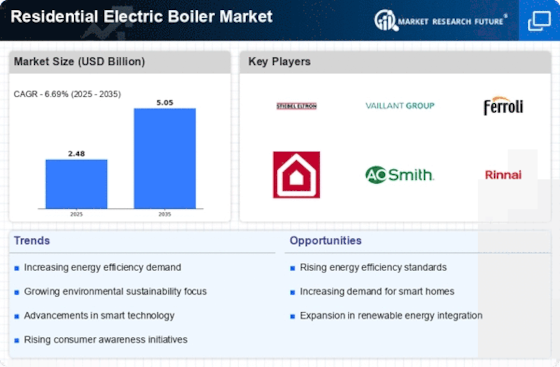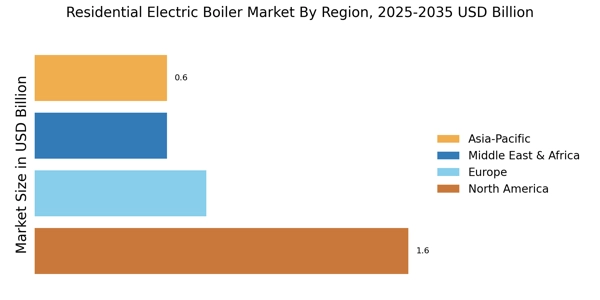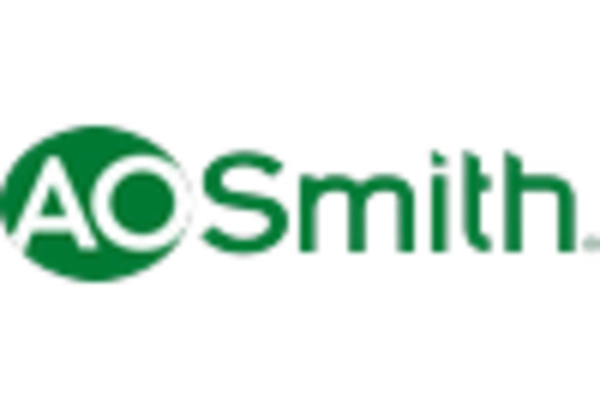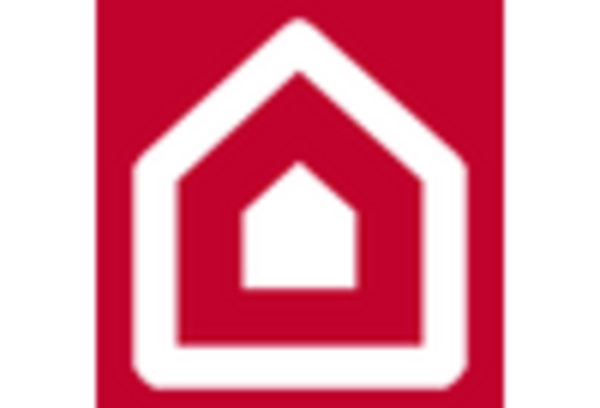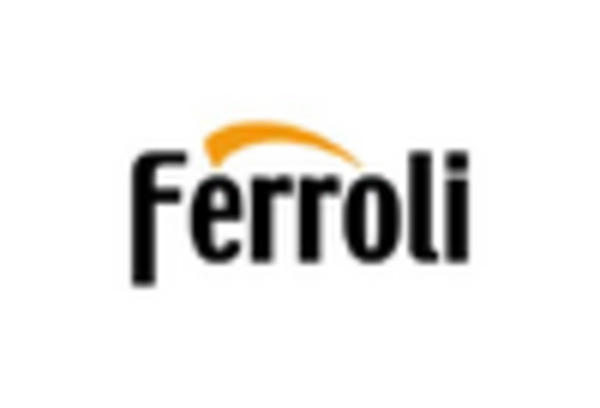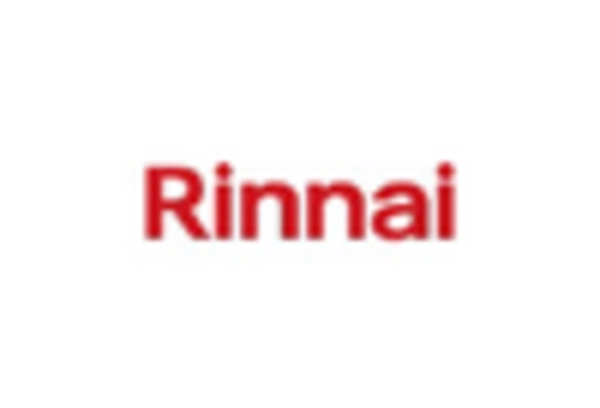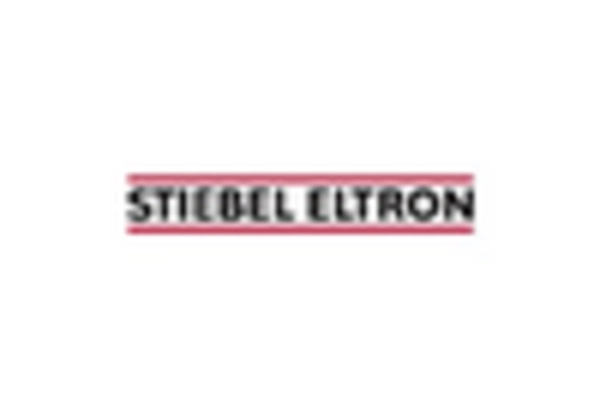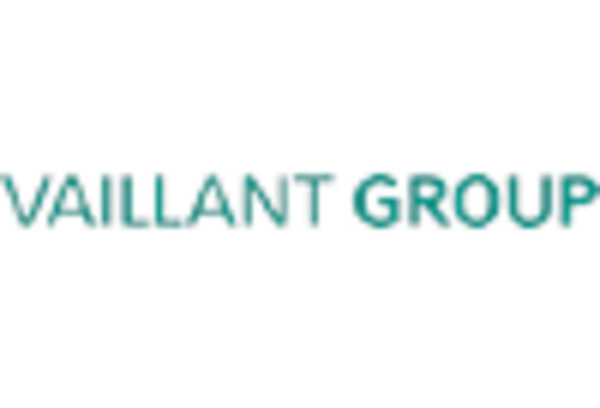Rising Energy Efficiency Standards
The Residential Electric Boiler Market is experiencing a notable shift due to increasing energy efficiency standards imposed by regulatory bodies. These standards aim to reduce energy consumption and greenhouse gas emissions, thereby promoting the adoption of electric boilers. As energy efficiency regulations become more stringent, manufacturers are compelled to innovate and enhance the performance of their products. This trend is reflected in the growing demand for electric boilers that meet or exceed these standards, which is projected to reach a market value of approximately 2 billion USD by 2026. Consequently, the emphasis on energy efficiency is likely to drive the Residential Electric Boiler Market forward, as consumers seek solutions that align with both regulatory requirements and personal sustainability goals.
Increased Focus on Indoor Air Quality
The Residential Electric Boiler Market is also being shaped by a heightened focus on indoor air quality. As awareness of the health impacts of poor air quality rises, consumers are increasingly seeking heating solutions that do not compromise air quality. Electric boilers, which do not produce combustion gases, are perceived as a cleaner alternative to traditional gas boilers. This shift in consumer preference is likely to drive the demand for electric boilers, as they contribute to healthier living environments. Market analysts suggest that the emphasis on indoor air quality could lead to a 25% increase in electric boiler installations in residential settings over the next few years, further propelling the growth of the Residential Electric Boiler Market.
Growing Demand for Renewable Energy Sources
The Residential Electric Boiler Market is significantly influenced by the increasing demand for renewable energy sources. As consumers become more environmentally conscious, there is a marked shift towards electric boilers that can be powered by renewable energy, such as solar or wind. This transition not only reduces reliance on fossil fuels but also aligns with global efforts to combat climate change. The market for electric boilers is expected to expand as more households seek to integrate renewable energy solutions into their heating systems. In fact, the adoption of electric boilers powered by renewable sources could potentially increase by 30% over the next five years, indicating a robust growth trajectory for the Residential Electric Boiler Market.
Technological Innovations in Heating Solutions
The Residential Electric Boiler Market is witnessing a surge in technological innovations that enhance the efficiency and functionality of electric boilers. Advancements such as smart thermostats, remote monitoring, and integration with home automation systems are becoming increasingly prevalent. These innovations not only improve user experience but also optimize energy consumption, leading to cost savings for consumers. The introduction of advanced features is likely to attract a broader customer base, particularly among tech-savvy homeowners. As a result, the market is projected to grow at a compound annual growth rate of 5% over the next few years, driven by the demand for modern, efficient heating solutions in residential settings.
Government Incentives for Electric Heating Solutions
The Residential Electric Boiler Market is benefiting from various government incentives aimed at promoting electric heating solutions. Many governments are implementing financial incentives, such as tax credits and rebates, to encourage homeowners to switch from fossil fuel-based heating systems to electric alternatives. These initiatives not only make electric boilers more financially accessible but also align with broader environmental goals. As a result, the market is expected to see a significant uptick in installations, with projections indicating a potential increase of 15% in the adoption of electric boilers over the next few years. This supportive policy environment is likely to play a crucial role in shaping the future of the Residential Electric Boiler Market.


